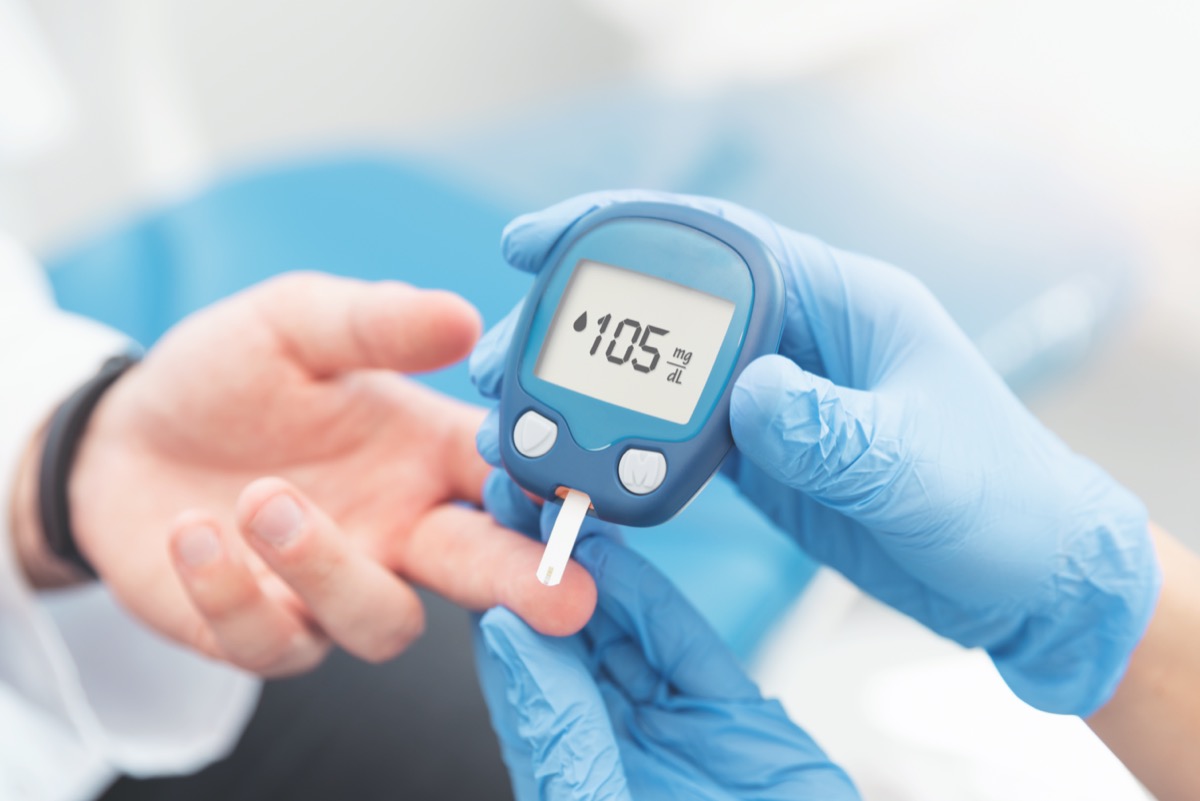What Happens To Your Body When You Eat Honey

Whether you're drizzling it on your morning oatmeal or adding it to your afternoon tea, honey is frequently seen as a healthy way to satisfy your sweet tooth without turning to foods sweetened with white sugar or high fructose corn syrup. In fact, according to the National Honey Board, the average American consumes approximately 1.3 pounds of honey every single year!
Fortunately, when it comes to your health, many of its properties are pretty sweet, too. Read on to discover the side effects of eating honey, according to experts. And if you want to give your diet an overhaul, start with The 7 Healthiest Foods to Eat Right Now.
Your blood sugar may spike.

While honey may not have the less-than-stellar reputation of other sweeteners, it has similar effects on your blood sugar.
"While there are minor differences in their chemical structures, your body pretty much handles all kinds of sugar the same way. It breaks it down and either uses it for energy or stores it as fat," explains Leigh-Anne Wooten, RD, a registered and licensed dietitian with Vitamix.
Wooten says honey can cause a major blood sugar spike if eaten alone, but she explains that combining honey with other foods can help diminish this effect. In the case of a peanut butter and honey sandwich, for instance, Wooten says, "Fiber from the whole wheat bread along with protein and fat from the peanut butter slow down the absorption of honey into your bloodstream. Your blood sugar will go up, but it won't happen as fast or go as high as if you were eating honey alone."
Your gut health may improve.

Want to improve your gut health? Honey might just be the sweetest way to achieve that goal.
"Honey is a natural antibacterial, especially in its raw form. This makes it a great addition to anyone's diet suffering from gastrointestinal issues, food poisoning, or simply wanting to prevent potential gut issues," explains Trista Best, RD, a Registered Dietitian with Balance One Supplements.
Citing a 2011 paper published in the Asian Pacific Journal of Tropical Biomedicine, Best notes, "Honey is particularly effective on three of the most common bacterial strains E. coli, Salmonella enterica, and Staphylococcus aureus." And if you want to limit the sugar in your diet, check out Side Effects of Giving Up Sugar, According to Science.
Your cancer risk may drop.

One of the more surprising side effects of eating honey? It may have a protective effect against certain types of cancer. Citing a 2011 review of research published in Evidence-Based Complementary and Alternative Medicine, Diana Gariglio-Clelland, RD, a registered dietician at Next Luxury, explains that, "Honey has the ability to induce apoptosis, or cell death, in the human breast, colon, and cervical cancer cells. Honey's antioxidant content also makes it helpful in protecting against certain cancers."
Your overall inflammation may plummet.

If you want to reduce inflammation throughout your body, adding a little honey to your diet might just be the easiest way to do so. "Chronic inflammation can lead to a multitude of diseases such as heart disease, stroke, diabetes, cancer, and fatty liver disease. Honey contains natural antioxidants, which help to fight inflammation in the body and prevent cell damage," explains Gariglio-Clelland.
In fact, a 2012 study published in the journal Innate Immunity found that indigenous honey produced in New Zealand exhibited "clinically relevant anti-inflammatory activity."
Your cold symptoms may clear up.

Want to kiss that nasty cold goodbye? Try some honey. According to a 2020 meta-analysis published in BMJ Evidence-Based Medicine, honey provided greater relief for upper respiratory tract infections than traditional treatments. And if you want to satisfy your sweet tooth without packing on pounds, check out these 27 Desserts That Won't Make You Fat.








